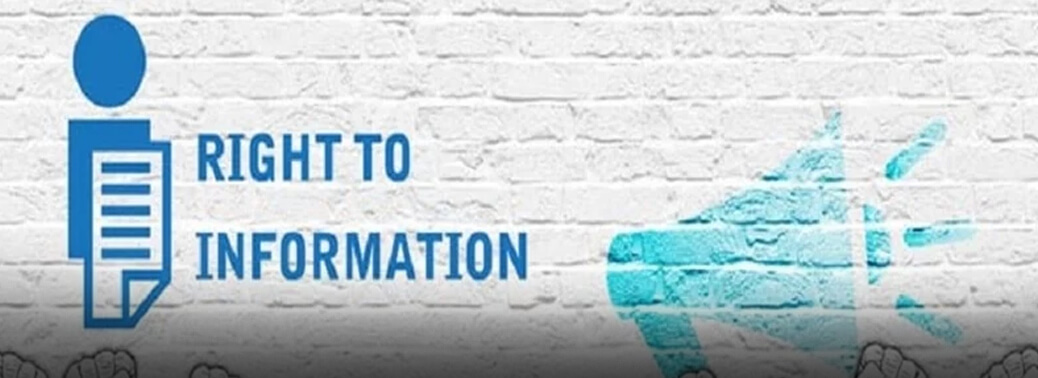AMENDMENT TO RIGHT TO INFORMATION (RTI) ACT
20, Jul 2019

Prelims level : Polity & Governance- Parliament; Policies
Mains level : GSII- Important aspects of governance, transparency and accountability, e-governance- applications, models, successes, limitations, and potential; citizens charters, transparency & accountability and institutional and other measures.
- Context- Government introduces Bill to amend the RTI Act.
Provisions of The Proposed Bill:
Tenure of CIC and IC:
- The Chief Information Commissioner (CIC) and Information Commissioner (ICs) have a tenure of five years. The Bill proposes that the tenure of the CICs and ICs should depend on the Central Government.
Salary of CIC and IC:
- The salaries of CIC and ICs in the Centre are equivalent to salaries of Chief Election Commissioner and Election Commissioners in the Centre.
- Similarly, the salaries of CIC and ICs in states are equivalent to salaries of Chief Election Commissioner and Election Commissioners in the state.
- The new bill says that the salaries of CIC and ICs both in Centre and State must be decided by the Central Government.
Provision of Pension:
- The Act says that if the CIC and ICs both in State and Centre are receiving a pension or any other retirement benefits for previous government service, then their salaries are reduced by an amount equal to the pension. The amendment wants to remove these provisions.
- In the above context, the government service means, services under the central government, state government, corporation established under a central or state law, or company-owned or controlled by the central or state government.
Opposing Arguments:
- Move will take away independence of the Commissions, highest adjudicating bodies in the matter of the RTI Act.
- The efficacy of the RTI Act, allowing any Indian to seek information from any authority on the payment of Rs 10, hinges closely on the independence of the CIC and its equivalents in the states — state information commissions that adjudicate the matter in case information is not furnished to applicants within the parameters of the law.
- Government has brought about the bill in complete secrecy and there have been no public consultations on the bill.
RTI Act 2005
Background:
- The Right to Information Act 2005 or RTI 2005, came into force in order to encourage a corruption free, transparent and accountable form of government in which the citizens feel a sense of power and safety.
- RTI 2005 is applicable to all states of India except for Jammu and Kashmir.
Provisions:
- Under the Act, a citizen can demand from any public or government authority any information (as long as it does not pertain to national security and defence or some personal information) and the authority is supposed to respond within a period of 30 days to the application.
RTI Act Information Exclusions:
- Under section 8 of the RTI Act, 2005 Govt/public authorities are exempted from sharing following information:
- Affecting the Sovereignty, Integrity, Security, Strategic interest, Scientific interest or Economic interest of the State of India
- Affecting relation of State of India with foreign State
- Forbidden by any court of law in India
- Breach of privilege of State assembly or Parliament of India
- Intellectual Property Rights, Copyright, Commercial Confidence or Trade Secrets
- Available to a person in his fiduciary relationship, unless disclosure is required in larger public interest
- Received from foreign Government
- Risk the life or physical safety of any person
- Impact or obstruct legal investigation
- Minutes of Union Cabinet meeting including discussion between Ministers, Secretaries or Govt officers
- Personal information i.e. breach of Privacy
Constitutional Validation:
- Under section article 19 (1) (a), the Supreme Court of India has held that rights to freedom of speech and expression includes the rights to information. According to this the right to information is implicit in the right to freedom of speech.
- All the citizens must have the right to get correct information in every sphere of their life. The apex court of India has ensured this right in the case of state of Uttar Pradesh” Vs Raj Narain (1974) 4 SCC 428. It is impossible for any democratic country to stand without the right to information for its citizen.
International Conventions:
- The United Nation Organization (UN proclaimed a Universal Declaration of Human Rights in 1948. This was followed by The International Convenant On Civil and Political Rights.
- Article 19 of the covenant declares that – “Everyone has the’ rights of freedom of opinion and expression the rights includes freedom to hold opinion without interference; and to seek, and receive and import information and ideas through any media and regardless of frontiers”.






